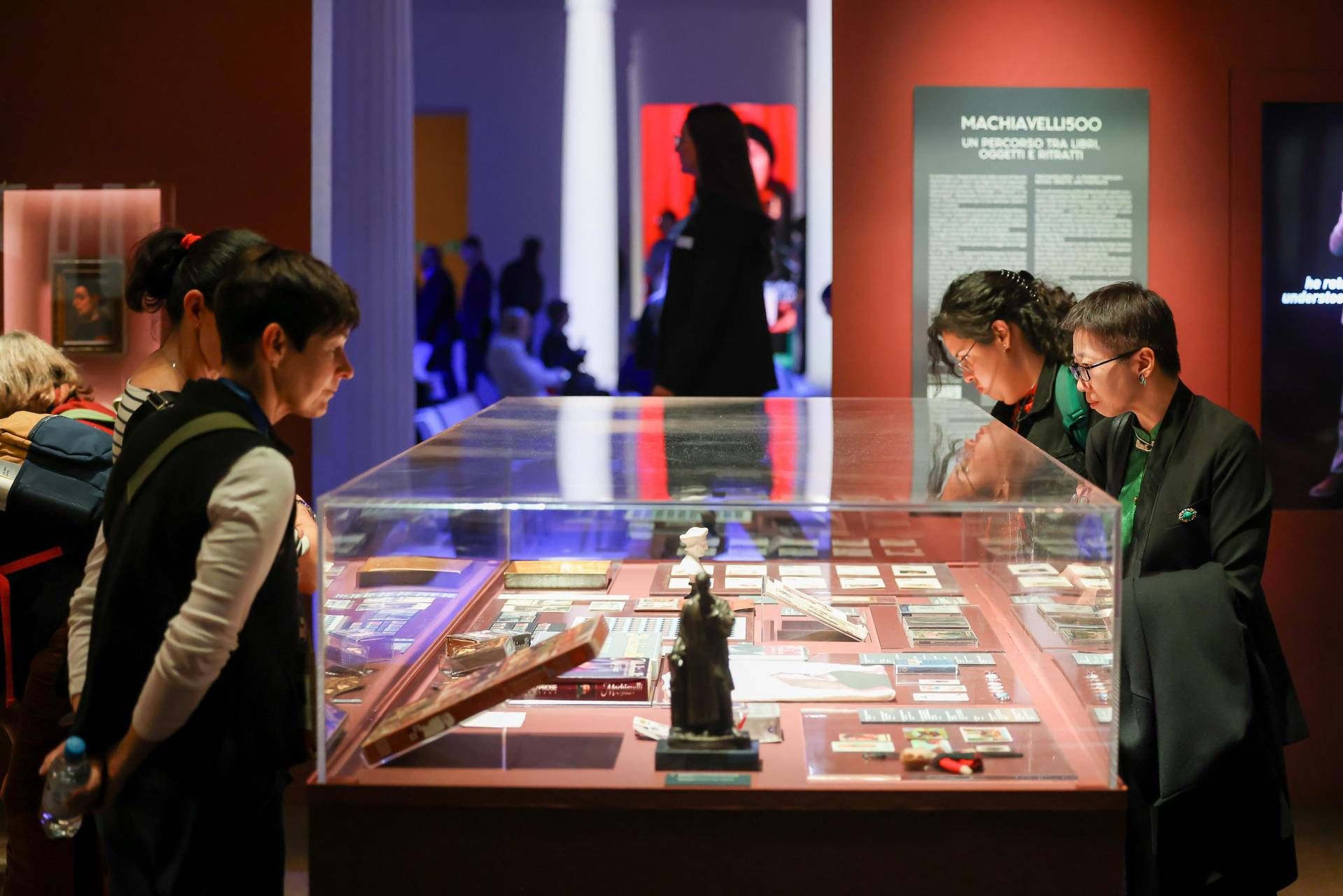In the dense and varied program of meetings at the Italian Pavilion of the Book Fair 2024the panel joined today “The culture that unites. Homeland and nation, right and left. The reasons for a dialogue”moderated by the journalist Tommaso Ricci, with Alessandro Campi, professor of History of political doctrines at the University of Perugia and Andrea Romano, historian, politician, journalist and editor.
To open the debate, a reflection on homeland and nation, “two fascinating and dangerous words that have lent themselves to a double culture throughout history – states Campi – The homeland was born as a democratic concept. The Nation, which was born with the French Revolution , is a formula that at a certain point was invented to allow a large community of people to be together and recognize themselves within themselves. When the nation is declined as a principle of exclusion, it becomes dangerous, but nation also means recognizing oneself around to values, history, laws.
“The question we should ask ourselves is what is the homeland in our opinion? – urges Andrea Romano to reflect – I think there is a right-wing and left-wing declination of homeland. Every political culture has its own declination of homeland and it is positive that right and left clash over the idea of homeland, because a fair clash is synonymous with democracy”.
The discussion then moved on to the ‘Right and Left’ categories: “I would invite you to put the issue in historical perspective, therefore not to think that there is an absolute right and left – underlines Campi -. Right and left change over the course of history The Italian political scientist Giovanni Sartori said that the right and the left are two containers that can be filled with different things. The values that distinguish the right and the left today? between universalism and particularism”. For Romano “there are different lefts and rights which are often in conflict with each other. The left has been universalist in its history. The risk I see today is that universalism is watered down by somewhat chaotic particularisms made up of many identities that do not I’m sure they’re really real. When the left hides behind these micro-identities, losing its universalistic message, it loses its identity.”
Finally, a passage on the reasons for a dialogue, as the title of the panel states: “The value of dialogue is indispensable – adds Campi – because there is no fun in engaging with those who are of the same position. I would like us to get away from the logic of the monologue, constructive debate is fun and useful for a country.” “There is a need for a discussion not only aimed at the academic caste – concludes Romano – I am optimistic, there is a need for vital, intense and well-argued discussions also through social media, in which we are all immersed”.

Barcelona Quiropractic | Israel Africa Hub
Culture – Asean Coverage
AseanCoverage – Next-Gen South East Asian News
Culture – Asean Coverage
Lifestyle – Surat Khabar
Technology – In The Headline
Technology – Daily Dispatcher
Entertainment – Daily Dispatcher
Entertainment – Buzzing Asia
Sports – Daily Dispatcher
Mengapa OVOVEGAS adalah Situs Paling Tepercaya untuk Game Online – Panda88
Consulente Esperto in Campagne Facebook Ads a Lodi
Finance – Daily Dispatcher
Daily Dispatcher – News Of The New Age
Soap-Free Carpet & Sofa Cleaner: Green Seal Stain Remover Home Bundle Available – WICZ
Finance – Daily Dispatcher
Gcslot: Tempat Kesenangan Slot Online Dimulai – Carbon Markets
Consulente Esperto in Campagne Facebook Ads a Novara
barcelonaquiropractic00 – My Desktop Nexus
Technology – Asean Coverage
Technology – Daily Dispatcher
Amplified Multimedia Content: Turnkey Marketing Service Announced – WICZ
London Pure Silk Sheets: Grade 6A 22 Momme, Machine Washable Bedding Updated – WICZ
Consulente Esperto in Campagne Facebook Ads a Lipari
Technology – Daily Dispatcher